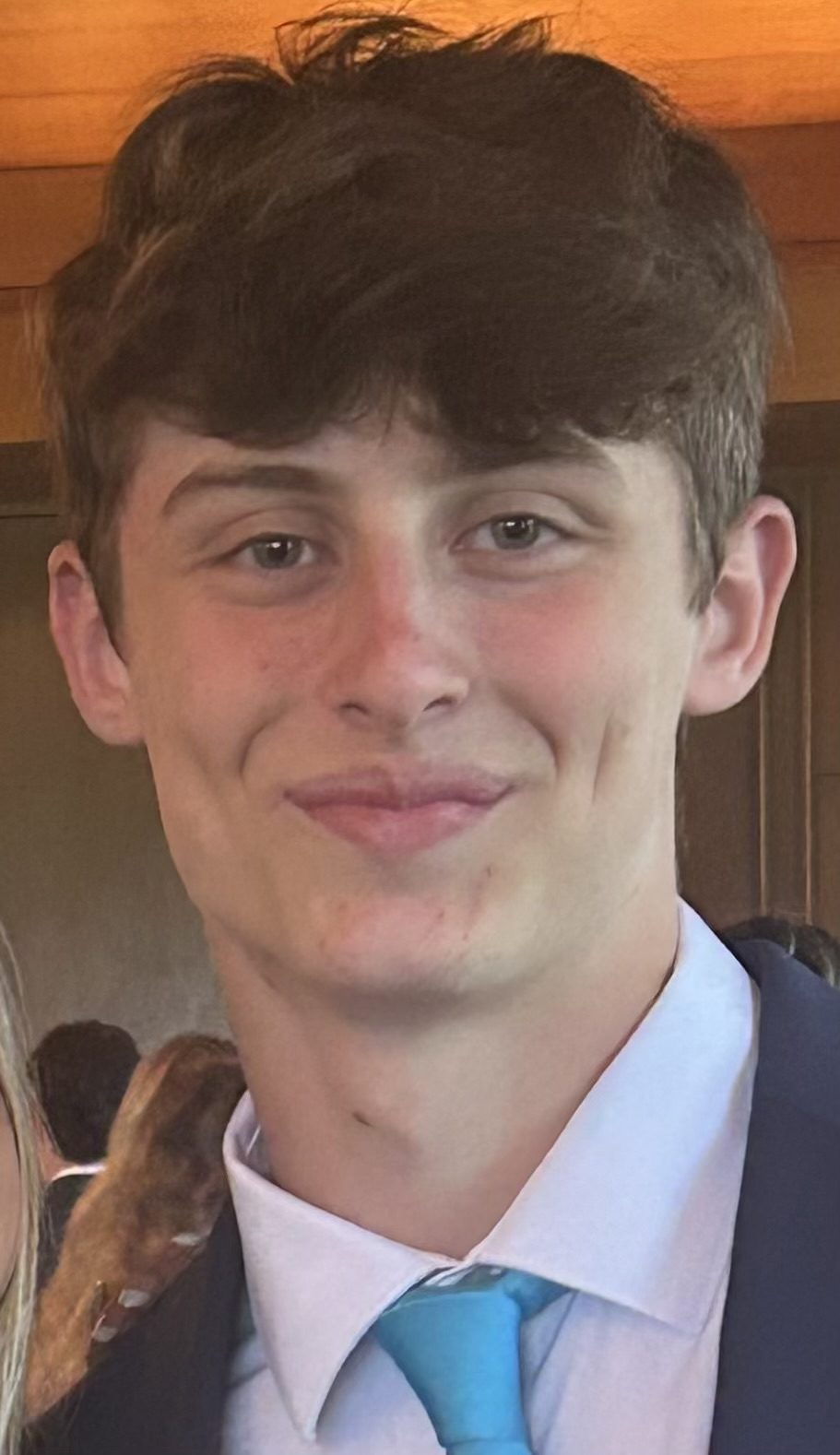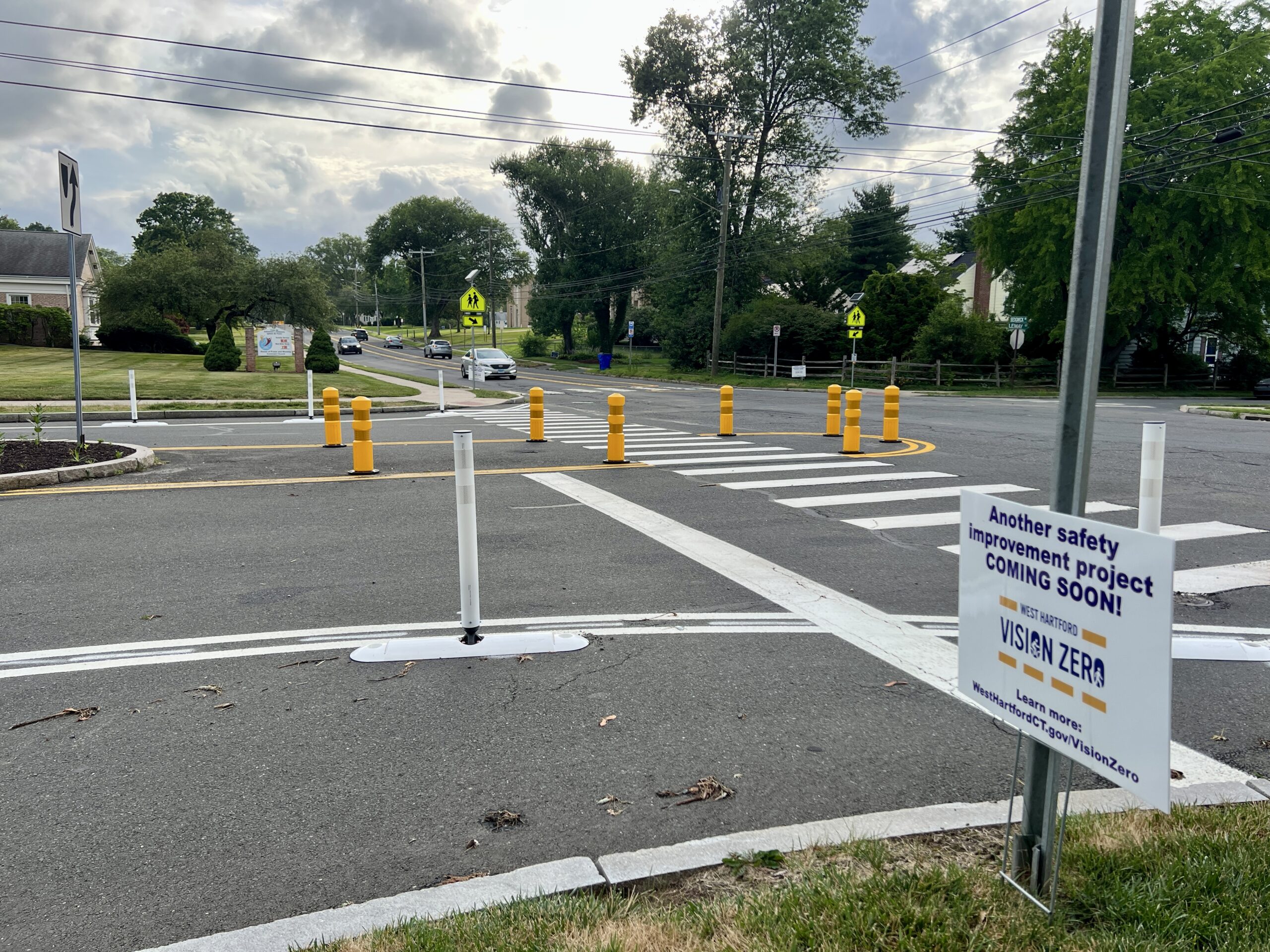Best-Selling Author Tayari Jones Workshops at Kingswood Oxford

Audio By Carbonatix
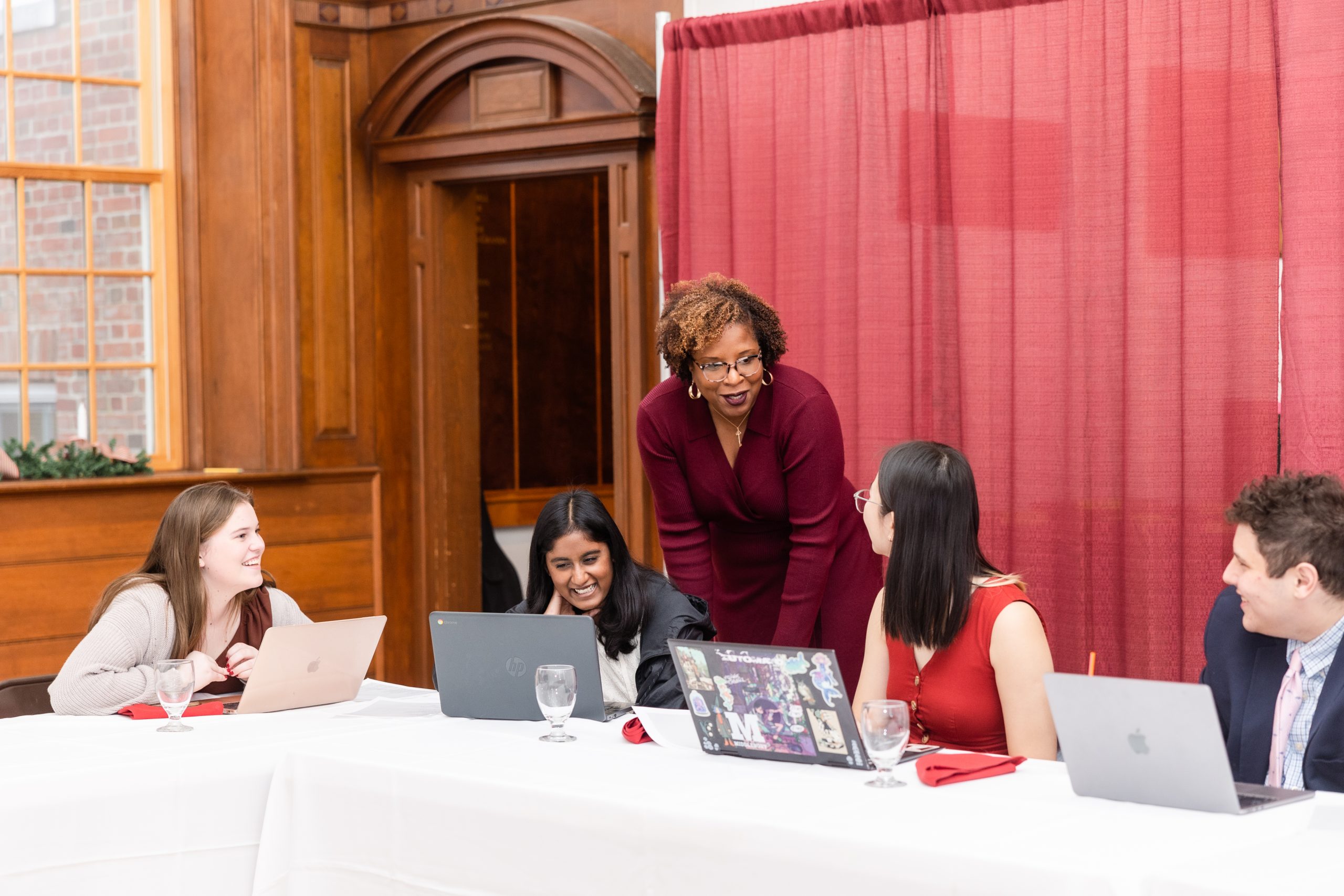
Author Tayari Jones works with KO students at the 2022-2023 Warren Baird English Symposium. Courtesy photo
Tabari Jones visited West Hartford’s Kingswood Oxford School earlier this month for the Warren Baird English Symposium.
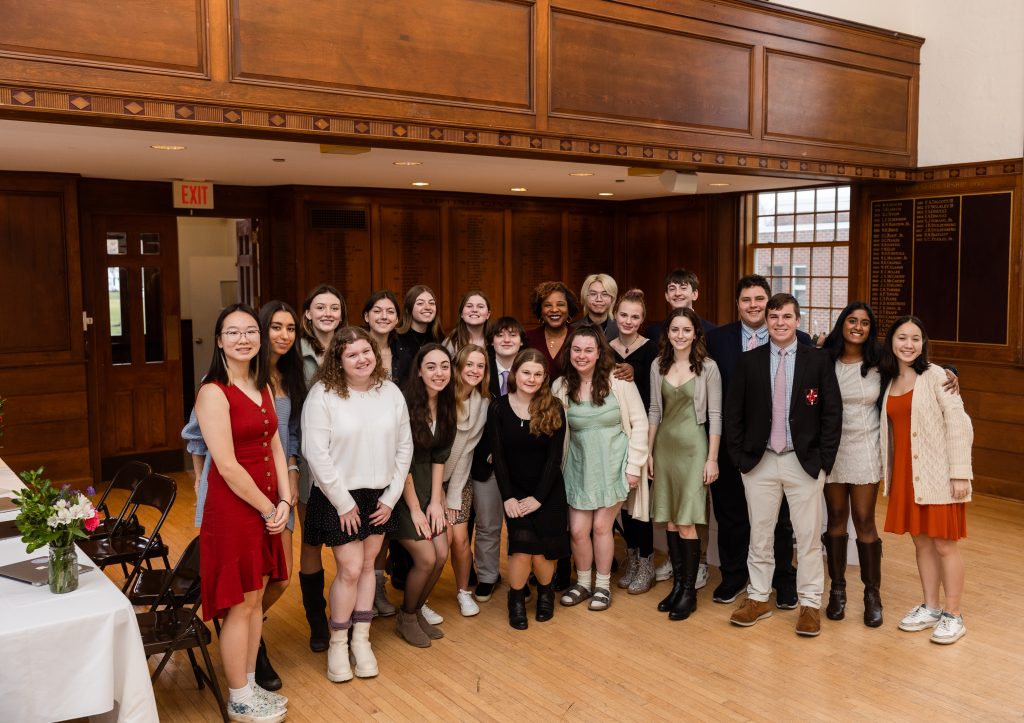
Author Tayari Jones with KO students at the 2022-2023 Warren Baird English Symposium. Courtesy photo
Submitted by Jackie Pisani, Kingswood Oxford
New York Times best-selling author of An American Marriage, Silver Sparrow, and other works, Tayari Jones visited KO on Jan. 5-6 as the 40th Warren Baird English Symposium guest.
Leading up to the event, symposium students read and worked with Jones’s books exclusively, dissecting, discussing, and analyzing them in preparation for her visit. Jones was a warm and impactful presence on campus during her time, workshopping with the symposium class and sharing her story with all Upper School students during the culminating assembly.
Her message was heartfelt and genuine, laced with delightful humor and, like her stories, a storyline that drew you in and kept you listening intently. While she acknowledged her story was about how she came to write novels, it was much more. “My message really is about following your dreams,” said Jones. “I know this is something you hear a lot, but it is something you can’t hear enough.”
Jones had a deep passion for writing from a very young age. She laughed at how as a young girl, she would make little books out of paper and staple them together. She never viewed herself as an intellectual, nevertheless an artist. It wasn’t until Jones attended Spellman College in Atlanta that she saw herself as more than just someone who loved to write. She met her first writer, a writer who was a teacher, and Jones took her first creative writing class.
Jones shared a funny recollection about her first creative writing class, which was only offered to upperclassmen. Not only was Jones just a freshman, but she was also the youngest freshman at Spellman. But Jones had her heart set on taking the class so she engaged in an act of “civil disobedience” and squiggled her advisor’s signature on the override form to permit her into the class.
On her first day of class, the teacher asked her what she was thinking about, and Jones started to tell her, only to have the teacher say, “No, write it down.” And with that, Jones had her first audience. “She was the first person interested in my thoughts and my written thoughts.”
About halfway through the semester, Jones found a slip of blue paper in her school mailbox, consistent with her advisor’s stationery. Jones mused that perhaps she was invited to a reception because she was doing well in her classes. Instead, her advisor had some questions about that dubious squiggle that looked like hers but was not hers. She told Jones it was an act of forgery and could be expelled because of her actions. Naturally, Jones was terrified about the repercussions.
The advisor, however, took a very different approach, making Jones promise she would never commit fraud again (Jones will go on record saying to this day she never has after that instance). Her advisor said, “I will say that when a young person wants to learn something so badly that she is willing to commit fraud, you must want very badly to learn indeed.”
While her parents and teachers recognized that she had great talent as a writer, they feared if she pursued this as her main career, she wouldn’t be able to have a steady income or a clear career path. They encouraged her to attend graduate school to become an English teacher who could write on the weekends. While Jones enjoyed the literature she was studying, she felt as though “I was a bird, and I was being trained to be a bird watcher.” Jones still believes in the importance of her day job because it allows her artistic freedom to write what she wants, so she doesn’t need to depend on her writing to survive.
For her third book, Silver Sparrow, Jones wanted to write about something very personal to her. Growing up, she had a sister her father had before Jones with a different woman than her mother. “I wanted to write a book letting her know that although she wasn’t in my life, she was in my mind. I had a sister who lived in my peripheral vision, but when I looked, she wasn’t there.” About three-quarters of the way through the book, Jones’s publisher dropped her because her sales weren’t high enough for them.
Unsure of what to do next, she did what she knew best – kept writing. ‘”It is what I tell my students,” Jones said. “You write the story your heart calls you to tell. You don’t write for an editor, an agent, or a market. You write a story because you think this is something that needs to be in the world.”
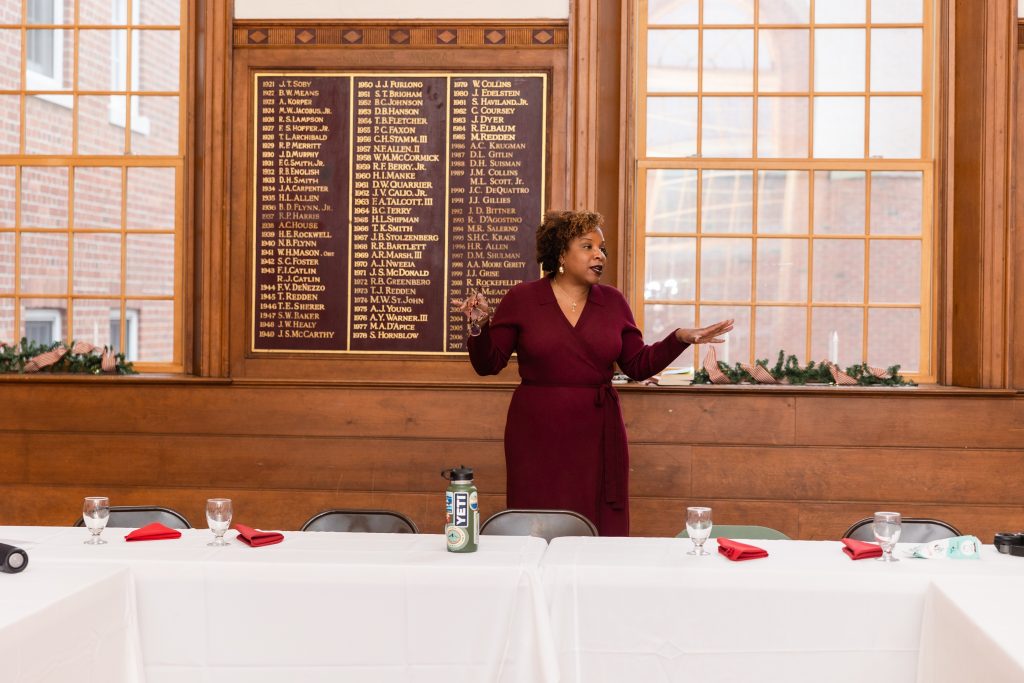
Author Tayari Jones speaks to KO students at the 2022-2023 Warren Baird English Symposium. Courtesy photo
Despite being canceled by the publisher, Jones had one speaking engagement on her calendar. Sad and dejected, she mustered up her strength and attended despite no book contract and books to sign after her reading. Upon arriving, she was surprised to see a small stack of her books waiting for her. When she asked the store owner where they came from, he told her they arrived with her name on them. She looked at the box and recognized her father’s handwriting. He had gathered the books they had ordered, and sent them with the fatherly instructions to sign the ones she could, then tell people she was sold out, which he explained, technically, was not a lie.
After the reading, she was approached by a woman who asked for a book and mentioned she had heard that Jones was out of a contract and books were out of print. At the woman’s encouragement, Jones took her hand and introduced her as a publisher who requested a copy of her book. Jones was fully ready for another humiliation but agreed with nothing to lose. Before leaving, the newly-introduced woman asked, “By the way, how do you know Judy?”
Jones, confused, wasn’t sure what she meant. The publisher explained, “Judy Blume … the woman who just introduced us.”
“It was like my nerdy childhood had come to rescue me because Judy Blume was my favorite author when I was a little girl. And, there she was, popped up in my life, and fixed my career. That was a Thursday; by Monday, I had a book contract.” Jones quickly shared with the crowd that her students often stop her at this part of her story because it proves that things happen because of who you know.
“It is about doing your work and doing your part. I finished writing that book, so it was complete. I was able to hand something to the publisher. That happened, and it was like the bad things never happened. When you keep doing your work, it erases the challenges. You learn from the challenges, but the effects of the challenges are gone.” Jones was back in print, promoted in her job as a professor, but most of all were able to hand her book to my sister and tell her how much she meant to her.
American Marriage was her fourth novel. The book was a huge success, widely read, and topped the lists of the likes of Oprah and Obama. “This was the book that changed my career, but Silver Sparrow changed my life,” she said. The book’s multiple points of view, Jones said, allow you to interrogate who has the privilege of telling the story. Understanding that the main character isn’t always right lends itself to a more interesting and complex story.
After sharing her story, Jones read an excerpt from Silver Sparrow and took questions from students to conclude. She bestowed an important piece of writerly advice in crafting propulsive plot lines. “Don’t fall in love with your thoughts and language. I need to remind myself as a writer that something has to happen. Remember: characters have to do things. Somebody gets killed.
“Love the voices of those around you. When you elevate the everyday voices, you hear music all around you,” she said.
Like what you see here? Click here to subscribe to We-Ha’s newsletter so you’ll always be in the know about what’s happening in West Hartford! Click the blue button below to become a supporter of We-Ha.com and our efforts to continue producing quality journalism.


